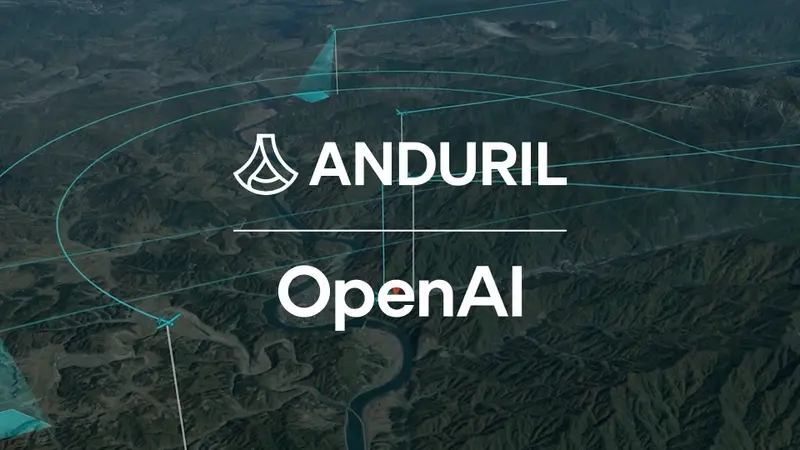OpenAI, the creator of ChatGPT and maker of frontier AI models such as GPT-4o and OpenAI o1, has announced a strategic partnership aimed at reshaping U.S. defense capabilities through frontier AI with Anduril Industries, a defense technology company that has established itself as a disruptive force in the defense sector.
A strategic alliance for national security
The collaboration will focus on advancing the country’s ability to detect and respond to modern aerial threats in real-time, drawing on OpenAI’s cutting-edge language models and Anduril’s battle-tested defense technology platform. On the surface, this is a collaboration between a generative AI powerhouse and a high-tech defense contractor. But beneath that, it’s a signal—loud and clear—that the future of national defense will be built not just with steel and bullets, but with software and semiconductors. More specifically, intelligent software capable of synthesizing vast quantities of data and helping decision-makers make faster, safer calls under pressure.
This alliance represents a significant shift in Silicon Valley's approach to defense technology. While tech companies have historically maintained some distance from direct military applications, the strategic importance of AI has changed the calculus, with leading companies increasingly seeing national security partnerships as both necessary and aligned with their broader missions.
Key objectives of the partnership
The collaboration will focus on several critical areas:
- Improving threat detection and assessment: OpenAI's models will be trained on Anduril's industry-leading library of data on counter-unmanned aircraft systems (CUAS) threats and operations, allowing for faster and more accurate threat assessment.
- Reducing cognitive burden on operators: Advanced AI will help synthesize time-sensitive data, enabling military and intelligence operators to make faster, more accurate decisions in high-pressure situations.
- Enhancing situational awareness: The technology will provide operators with better information while keeping them out of harm's way.
- Maintaining U.S. technological leadership: The partnership positions the United States to maintain its edge in the accelerating global race for AI supremacy, particularly against competitors like China.
Leadership perspectives
Both companies' leadership have emphasized their commitment to responsible AI development and the importance of this collaboration for national security:
"Anduril builds defense solutions that meet urgent operational needs for the U.S. and allied militaries," said Brian Schimpf, co-founder & CEO of Anduril Industries. "Our partnership with OpenAI will allow us to utilize their world-class expertise in artificial intelligence to address urgent Air Defense capability gaps across the world."
"OpenAI builds AI to benefit as many people as possible, and supports U.S.-led efforts to ensure the technology upholds democratic values," said Sam Altman, OpenAI's CEO. "Our partnership with Anduril will help ensure OpenAI technology protects U.S. military personnel, and will help the national security community understand and responsibly use this technology to keep our citizens safe and free."
An evolving landscape for technology and defense
Historically, Silicon Valley was skittish about direct involvement with the defense community. But that attitude is changing rapidly. The accelerating AI arms race with China, combined with the recognition that advanced software is a new form of deterrence, has pushed tech leaders to rethink how they engage with public institutions.
Earlier this year, OpenAI modified its policies to allow for certain military applications of its technology, while maintaining a commitment to responsible use. Similarly, other major AI companies like Anthropic have announced partnerships with defense contractors, and Meta has made its open-source Llama AI technology available to U.S. government agencies working on national security.
Looking ahead
This partnership represents a powerful milestone that may end up reshaping entire industries. Both OpenAI and Anduril are clear leaders in their respective domains, building systems that will define the future of AI and national security, however together their potential seems even greater.
This evolution makes us even more optimistic about the future of AI and defense technology, as we suspect an increasing number of companies may seek out similar cross-sector collaboration that we believe will only further propel this next stage of technological progress.

